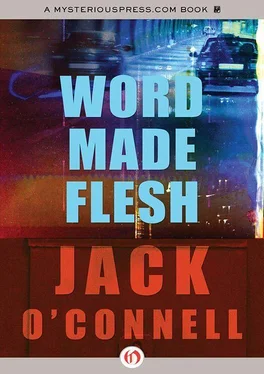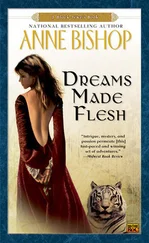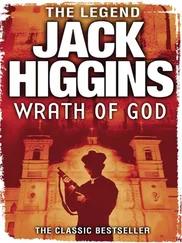On that premier courting, that original wooing, you told me everything a native feels it necessary to impart to the blank émigré. I know it was a two-way conversation, at least at the start, but I gave you back nothing of value that I can recall. You might have thought you were relaying an informal history of your hometown, but the history was transparent. It was a clear laminate. And underneath it I could see, right there from the start, your own personal history, the checkpoints that brought you to our maiden night together.
I was impressed, I will admit, not with the underplayed minutiae you’d accumulated about this bastion of obsolete industry that you have always called home. But more with the unknowing earnestness that was behind every word, as if instead of delineating for me the routes of the old P&Q railroad, you were chanting the sounds that would turn lead into gold. As if instead of running down a not-so-brief synopsis of the lineage of the Quinsigamond Diner, you were descanting new ways to split the atom.
But what I need to focus on, what I need to underline, for myself just as much as for you, is that moment when we made a circuit on the south side, just as dawn was breaking and we were cresting over Nipmuck Hill and you started to point out the spires and turrets that make up the Gothic wonderland of the Jesuit Olympus, the College of St. Ignatius. And you came to tell me, right then, on our first night — were you convinced there would be no others? — the story of your expulsion from the school. What you called, with a heaping of self-drama that I swore you were unaware of, “the Transubstantiation Scandal.”
It’s a different sensation for Lacazze, being in the front seat instead of the back, active rather than passive, choosing direction and speed. He likes driving better than riding, though the silence is a little discomforting, a reminder that he may never hear the rest of the old man’s story. Otto’s Tale. In his honor, the Inspector glides the cab through the downtown banking strip and heads for Gompers Station. Before the night is out, he may even sample a bearclaw.
He begins the long, slow circle around the train yard, even imitating Langer’s quirk of opening the window a crack as the cab passes the chronically flaming trash Dumpsters of the east yard. He looks out on a pack of the more feral tinker kids, huddled around a Dumpster, basking for a moment in its heat. These are the ones who’ve gone fully over to the other side, who’ve abdicated an integration that was never fully offered. Lacazze wonders why so many people in this city deny the existence of the feral tinkers, talk of them with the exasperated weariness of the put-upon scientist denying alien abductions or the flatness of the earth. Here they are in plain sight. Flesh and blood. How can you call them a myth? Someone, he decides, should tell their story.
In the backseat, the passenger shifts with the curve of the road.
Not being a Catholic, I had to intuit the depth of your breach. But as you relayed the story about those weeks preceding your SIN, those awful weeks of lying on your back in the dark, the time that you called (risking making trite the obviously genuine pain), your “spiritual torment,” I started to wish I could relate on an emotional level as well. Because there was just something about your voice in the telling of this story. It had changed somehow, taken on a timbre, a resonance it had not previously had. (Maybe it was just all that bad coffee you had poured from a Thermos bottle shaped like a Menlo cartoon character — I think it was Alice Watzername.)
And eventually you got to the part where you made yourself walk to that basement chapel and attend the Midnight Mass. And I was as transfixed as if I’d been watching the most enthralling horror movie ever lensed. A horror movie played inside the cortex of your own brain that, at some unnoticed point, began to incorporate, exactly and seamlessly, your deepest fears into the plot line. I was walking with you down that endless center aisle as the organ played “Faith of Our Fathers.” And I’d never attended a Mass in my life. I felt you tremble as you came to a stop in front of the Jesuit priest — Father Clement, wasn’t it? — and extended your open palm to receive the wafer. I was sharing your nerve endings as you tried and failed to respond to the priest’s “Body of Christ,” and couldn’t bring yourself to mutter the “Amen.” And your mouth was my mouth when you turned and brought the Host up and past your lips, over your tongue, and secreted it in the left- side gully between the interior cheek and the gums. I will never forget the coldness of the early spring air as you made your way, walking faster with each step, out of the chapel and across the campus, the fear as you reached into your pocket to touch the key to the lab, the key you had gone to ridiculous lengths to obtain and have copied weeks before, still not knowing if you’d go through with it all, and the simultaneous (but different) fear as the bread began to dissolve in your mouth, mixing too quickly with the acidic saliva.
I could hear the terror-making echo of your boots inside the biology lab, feel the agony of the short wait as you turned on the electron microscope and found the glass slide, extracted the Eucharist from your mouth, sick to your stomach now with the finality of your actions, placed the Host onto the slide and secured the slide under the clamps of the scope. I could feel the dry blink of your eyeball as it began making its way toward the enlarging lens. Could hear the sound of the door opening behind you, hear the voice of the security guard, “the toy cop” as you uncharitably called her, demanding to know what you were doing.
Had you ignored her even for an instant you might have gotten a look. Proved to yourself once and for all the fact or the absence of fact regarding molecular conversion and the ways of mystical transformations. But you stood up, as if you’d been questioned by the voice of God itself rather than a minimum-wage security guard. You stood up and she approached the table and immediately caught on to what was happening here. I have to wonder on occasion, when she took the job, could your toy cop ever have known that one night her routine of drunk and disorderlies and parking violators would be disrupted by, of all things, a heretical truth seeker?
As your father was neither alumnus nor contributor to the cause, they managed to kick your doubting ass out the gates and off the Hill inside a week.
And now, I would imagine, you realize the point of this entire diatribe.
There was an awkward pause when you’d finished the story. Less than ten seconds, I would guess. We were parked behind the closed diner at the bottom of the hill and you were looking up at the crosses that capped the turrets of the tallest buildings. I remember your face side-lit by the green neon that rimmed the diner’s marquee. And that is when I laughed.
I laughed at the story of the Transubstantiation Scandal.
And I have always hated myself slightly but consistently for that burst of laughter. That it ended immediately made it somehow worse.
I have always wondered why, in the wake of my laugh, in the face of my fierce insensitivity and disrespect in the moment after you had just confessed to me the event that clearly altered your life in a profound way, you ever wanted to see me again. And how you ever could have married me. And now, tonight, sitting here in the bedroom of the perfect bungalow, the answer comes to me in an instant, in the way that conversion came to Saul on the road to Damascus.
As I watch you shift in the bed now, naked and rolled toward me, as I watch your mouth fall open, making your face appear so much younger, appear close to childlike, I understand everything: You wanted me even more after I laughed at your story. Because you wanted to know how someone lives completely devoid of any kind of faith. Without that relentless burden that had chewed at you for so long. Gnawed away, day and night, at your liver and your soul.
Читать дальше












